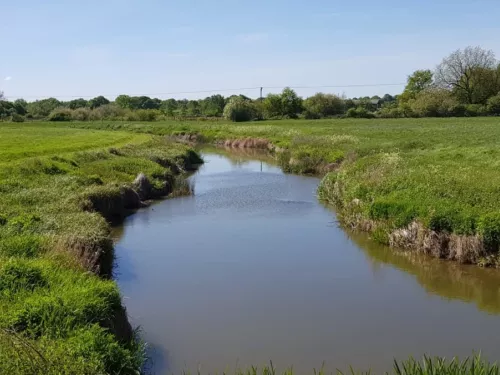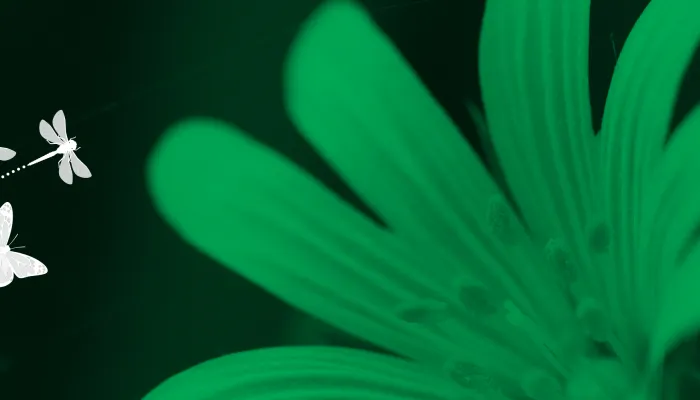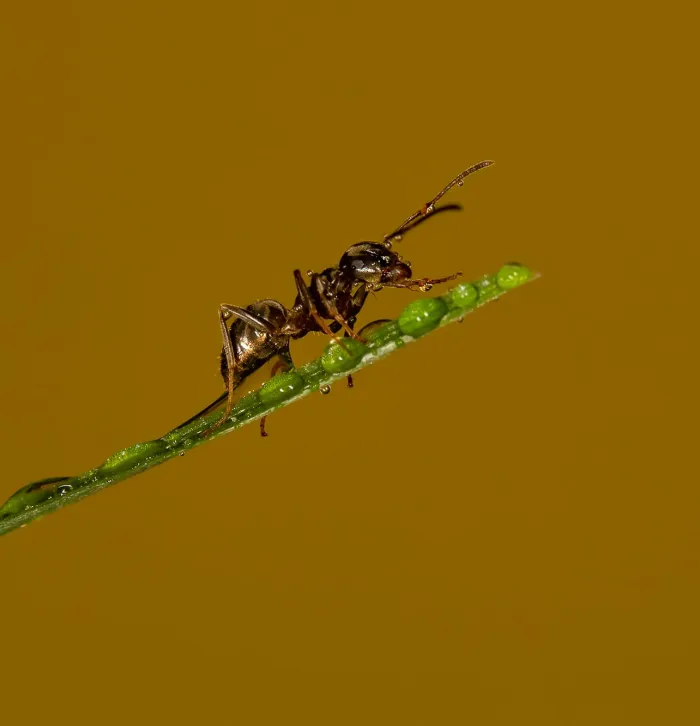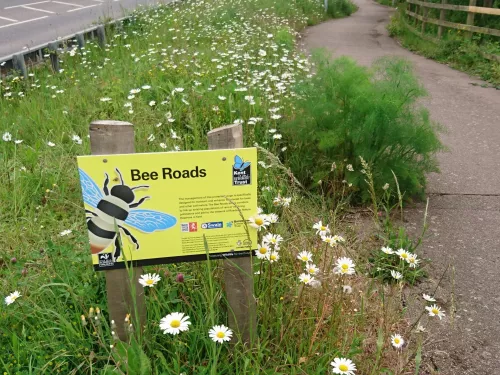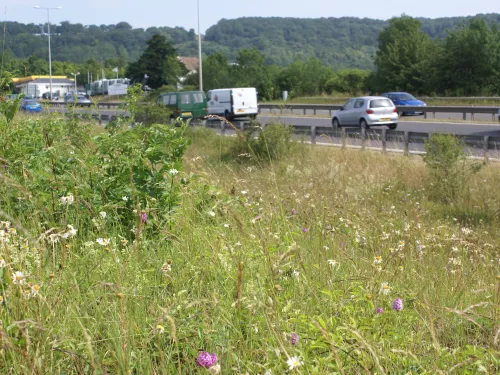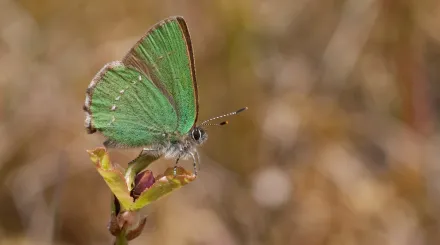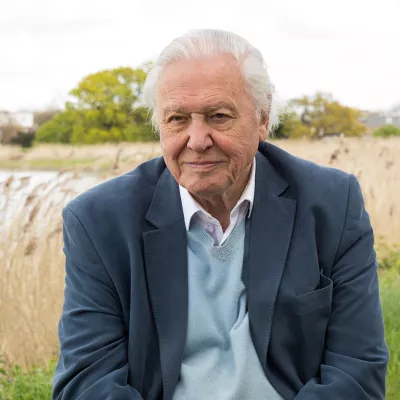We can turn our cities, towns, villages and gardens into a buzzing network of insect-friendly habitats. We have about ½ million hectares of gardens in the UK, plus city parks and green spaces, school playing fields, railway embankments and cuttings, road verges and roundabouts; if managed favourably, and if we avoid pesticide use these areas could go a long way towards creating a national ‘Nature Recovery Network’.
250,000 miles of road verges. More could be managed for wildlife by sowing insect-friendly seed mixes, mowing later in the year, and removing the cuttings. Green bridges should be a part of transport infrastructure projects.
430,000 hectares of gardens. Wildflowers in gardens have huge potential to help pollinators such as bees. A network of small patches could help bees thrive in urban areas.
52 million people. 80% of the UK’s population live in urban areas. New parks, street trees, green roofs and walls are an important way to help everyone experience nature in daily life.
Our public spaces. Two-thirds of amenity land is short mown grass, but meadow habitats support eight times more wildlife. Just allowing more flower species in the grass, and
mowing some areas less frequently has been shown to be of huge benefit to insects. Greener and more biodiverse neighbourhoods provide health and wellbeing benefits for people.
Our farmland. 70% of UK land is farmland, so making our farms more wildlife-friendly and sustainable is vital.
